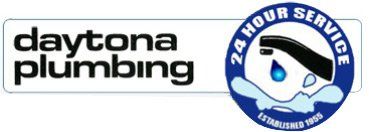How to Prevent Clogged Pipes in Your Home: Tips and Tricks
How to Prevent Clogged Pipes in Your Home: Tips and Tricks

Clogged pipes are a common plumbing issue that can disrupt daily life. From slow-draining sinks to water backing up into your bathtub, blockages can lead to serious and costly plumbing problems if not addressed quickly. Preventing clogs is easier than most people think, and regular maintenance can save you time, money, and headaches in the long run. Here are some practical tips to help you avoid clogged pipes.
1. Avoid Pouring Grease Down the Drain
Grease is one of the top culprits of clogged pipes. When poured down the drain, it can solidify and create thick deposits along the interior of your pipes. Over time, these deposits build up and cause blockages. Instead, dispose of grease in a container and throw it in the trash. This small change can prevent long-term plumbing problems.
2. Use Drain Screens
Hair, soap scum, and food particles are common substances that cause drain clogs. Installing drain screens in sinks, bathtubs, and showers can help catch debris before it enters your pipes. Make sure to clean the screens regularly to keep them functioning properly.
3. Don’t Flush Wipes or Paper Towels
Even "flushable" wipes can cause significant blockages, as they do not break down easily in water. Dispose of wipes and paper towels in the trash to protect your plumbing.
4. Regularly Clean Your Drains
Grease and debris can accumulate in your pipes. Regular cleaning with a mixture of baking soda and vinegar or a store-bought drain cleaner can help prevent clogs. Follow the instructions carefully when using chemical cleaners.
5. Run Hot Water After Each Use
After using the sink or shower, run hot water for a few seconds. This helps flush down any lingering grease, soap scum, or food particles that might be building up. Hot water can help dissolve grease and keep your pipes clear.
6. Be Mindful of What You Put Down the Garbage Disposal
Garbage disposals can be helpful, but they aren’t invincible. Avoid putting hard-to-grind items, such as bones, coffee grounds, or large quantities of fibrous foods like celery, into your garbage disposal. These items can clog both the disposal and your pipes. Always run plenty of water while using the disposal to help flush waste through the system.
7. Install a Whole-House Water Filtration System
Minerals in your water, such as calcium and magnesium, can build up over time and cause a variety of plumbing issues, including clogs. Installing a whole-house water filtration system can help reduce mineral deposits and protect your pipes from long-term damage.
8. Have Your Plumbing Inspected Regularly
Even with regular maintenance, pipes can still develop issues over time. A professional plumber can inspect your system and identify potential problems before they escalate. Annual inspections can save you from costly repairs and clogs that could have been avoided.
9. Know What’s Going on With Your Plumbing
If you start to notice slow drainage or gurgling sounds from your pipes, it’s important to take action quickly. These are early signs of a blockage forming. By addressing these issues early, you can prevent a full-blown clog that may require extensive repairs.
10. Use Natural Drain Cleaners
If your drains are slowing down, try a natural solution like baking soda and vinegar to clear minor clogs. It’s a gentle, eco-friendly way to maintain your pipes without damaging them.
By following these tips and tricks, you can significantly reduce the risk of clogged pipes in your home. Regular maintenance and being mindful of what goes down your drains can keep your plumbing system running smoothly for years to come. For professional plumbing solutions in the Daytona Beach area, trust Daytona Plumbing. Whether you need drain cleaning, pipe repairs, or emergency plumbing services, our experienced team is ready to assist you. Call us today at
386-253-7674 for fast and reliable service.






